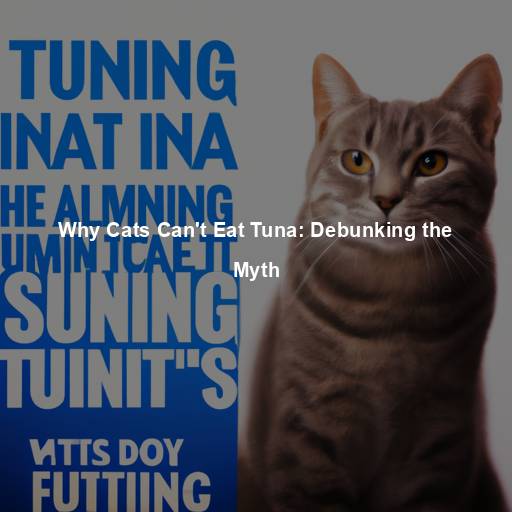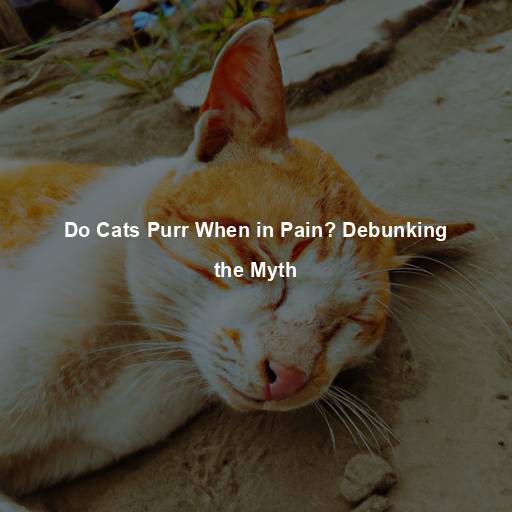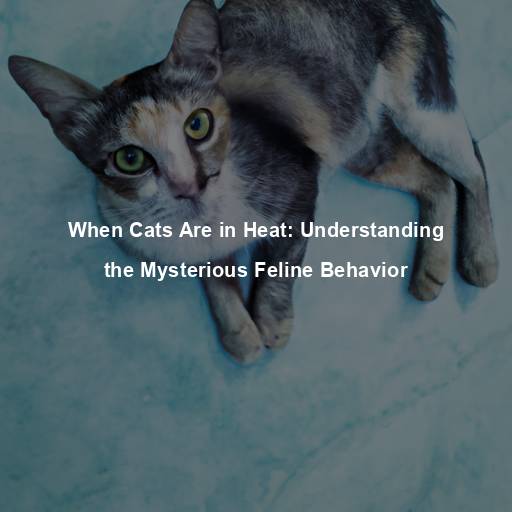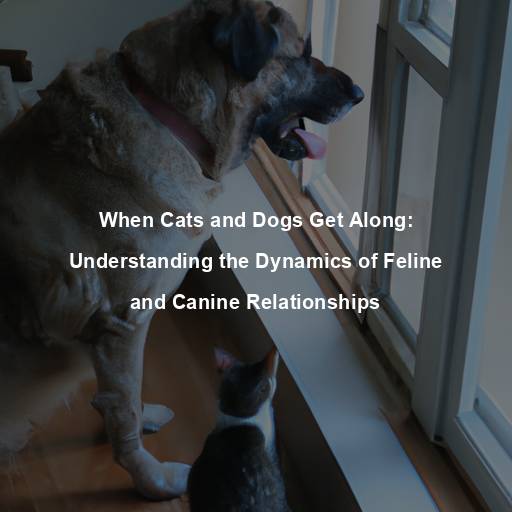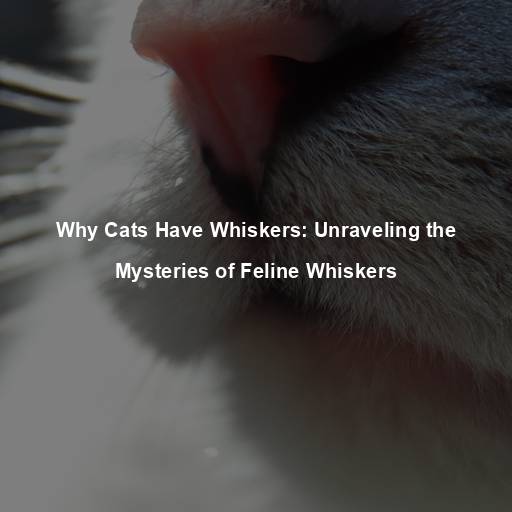Why Cats Can’t Eat Tuna: Debunking the Myth
Last Updated on November 12, 2023 by Evan
Contents [hide]
- 1 The Fascinating World of Feline Dietary Needs
- 1.1 Understanding the Feline Obligate Carnivore
- 1.2 The Allure of Tuna for Cats
- 1.3 The Pitfalls of Tuna for Cats
- 1.4 Safe Alternatives for Feline Delights
- 1.5 The Importance of a Balanced Diet
- 1.6 Understanding Taurine
- 1.7 Taurine Deficiency: Potential Consequences
- 1.8 The Importance of Animal Protein
- 1.9 Balancing the Diet: The Role of Commercial Cat Food
- 1.10 Supplementing Taurine: A Word of Caution
- 1.11 Exploring Cats’ Love for Fish
- 1.12 The Risks of Fish-based Diets for Cats
- 1.13 The Importance of Variety in Feline Diets
- 1.14 Choosing High-Quality Cat Food
- 1.15 Transitioning Cats to New Diets
- 1.16 Consulting with a Veterinarian
- 2 FAQs – Why Cats Can’t Eat Tuna
- 2.1 Is tuna safe for cats to eat?
- 2.2 What nutrients are missing from tuna that cats need?
- 2.3 Can’t cats get enough nutrients from tuna if they eat it regularly?
- 2.4 Can cats develop an allergy to tuna?
- 2.5 Can tuna contain mercury, which is harmful to cats?
- 2.6 What alternatives can be given to cats instead of tuna?
- 2.7 Are there any occasional treats that include tuna, which are safe for cats?
The Fascinating World of Feline Dietary Needs
Cats have always intrigued us with their mysterious ways. From their graceful demeanor to their independent nature, felines have captured our hearts for centuries. As responsible pet owners, it is our duty to ensure their well-being, which includes providing them with a balanced and nutritious diet. However, amidst the plethora of conflicting information available, one question that often arises is whether cats can safely consume tuna.
Understanding the Feline Obligate Carnivore
To comprehend why cats can’t eat tuna, we must first grasp the concept of a feline’s dietary requirements. Cats are obligate carnivores, which means their bodies are designed to thrive on a diet primarily consisting of animal protein. Unlike humans or dogs, cats lack certain enzymes necessary for the digestion of plant-based nutrients. Therefore, their bodies rely heavily on obtaining essential nutrients, such as taurine and arachidonic acid, from animal sources.
The Allure of Tuna for Cats
Tuna has long been associated with cats, often portrayed as a treat or a special indulgence. Its strong aroma and rich flavor make it highly enticing to feline taste buds. However, despite its popularity, tuna should not be a regular part of a cat’s diet.
The Pitfalls of Tuna for Cats
While it may seem harmless to share a can of tuna with your feline companion, there are several reasons why it should be avoided as a dietary staple:
Did you know that some types of tuna, like albacore, can actually be hazardous for our furry feline friends? It turns out that these fish can contain high levels of mercury, which, if ingested by cats over time, can lead to a condition called mercury poisoning. This can wreak havoc on their neurological system, causing a host of troubling symptoms.
When it comes to nourishing our feline friends, relying solely on tuna falls short of meeting their nutritional needs. Cats, as natural carnivores, require a delicate symphony of amino acids, vitamins, and minerals that can only be found in a diverse range of animal protein sources. A lopsided diet centered around tuna may leave our furry companions feeling a bit perplexed and undernourished. The secret lies in understanding their unique dietary requirements and offering them a well-rounded menu bursting with essential nutrients.
When it comes to nutrition, not all options are created equal. Take tuna, for example. While it may seem like a protein-packed choice, it’s important to note that it falls short in providing our feline friends with essential nutrients such as taurine. This mighty amino acid plays a vital role in supporting their heart health and vision, making it a crucial component of their balanced diet.
- Risk of Thiamine Deficiency: Feeding cats large amounts of raw tuna can lead to thiamine deficiency, as raw fish contains an enzyme that destroys thiamine. Thiamine is a vital B vitamin that cats require for proper metabolism.
Safe Alternatives for Feline Delights
Luckily, there exists a wide array of wholesome and secure options that can fulfill your feline friend’s culinary desires while keeping their well-being intact.
Discover the pinnacle of feline nourishment with commercially prepared cat food, meticulously crafted to cater to your precious feline’s dietary requirements. Unlock the gateway to optimal feline health by selecting brands that adhere to the esteemed benchmarks established by skilled veterinary nutritionists. Capture the essence of well-being and bask in the perplexing world of feline nutrition.
Looking to add some variety to your furry friend’s diet? Consider incorporating cooked meats like tender chicken, juicy turkey, or succulent beef (unseasoned, of course! ) on occasion. However, make sure to cook these meats thoroughly to ensure any lurking bacteria are banished.
- Wet Cat Food: Wet cat food often contains a higher moisture content, which can help promote proper hydration in cats. Look for varieties that are nutritionally complete and meet the necessary standards.
When it comes to selecting the ideal diet for your feline companion, it’s natural to experience a wave of uncertainty. But fear not, for there is a beacon of expertise ready to illuminate your path: the veterinarian. By seeking their professional counsel, tailored to your cat’s unique requirements, you can navigate the perplexing world of feline nutrition with confidence and peace of mind. So why stay in the dark?
The Importance of a Balanced Diet
Creating a nourishing diet is of utmost importance when it comes to the holistic health and vitality of our beloved feline friends. Though the allure of indulging them with our own gastronomic delights may be irresistible, it is imperative to acknowledge the intrinsic disparities between our dietary needs and those of our cats. Opting for meticulously balanced feline-friendly sustenance, while being vigilant of the perilous human foods that can jeopardize their well-being, is the epitome of responsible care; guaranteeing longevity and optimal health for our cherished companions.
Understanding Taurine
When it comes to feline health, the spotlight is on taurine – a vital amino acid that cats simply can’t get enough of. Unlike their human counterparts, our feline friends struggle to produce sufficient levels of taurine naturally, leaving them vulnerable to potential health woes. That’s why it’s crucial to provide cats with top-tier taurine sources in their diet, ensuring they stay purrfectly healthy and free from deficiencies that might darken their whiskery world.
Taurine Deficiency: Potential Consequences
Insufficient intake of taurine, an essential nutrient for our feline companions, can result in a myriad of worrisome health issues. These complications, ranging from the mildly perplexing to the downright alarming, can manifest themselves in various ways, leaving cat owners wondering how to unravel this nutritional enigma. Feline hearts, eyes, and reproductive systems, among others, are at risk of suffering the consequences of this baffling deficiency, emphasizing the importance of ensuring our furry friends receive their adequate dose of taurine. So, let’s embark on a journey through the puzzling world of feline nutrition, seeking to decode the complexities surrounding taurine and its crucial role in maintaining our cats’ wellbeing.
- Cardiovascular Problems: Taurine deficiency can result in dilated cardiomyopathy, a condition characterized by an enlarged heart and weakened heart muscle. This can lead to heart failure and even death in severe cases.
Did you know that taurine plays a crucial role in preserving the well-being of our feline friends’ eyes? It’s a true eye-opener! Insufficient taurine levels can lead to a cat’s vision being compromised, with the possibility of retinal degeneration and even complete blindness looming in the shadows. So, let’s shed some light on the importance of taurine for our furry companions’ visual health.
Reproduction can be a complex journey for our feline friends, and it seems that taurine deficiency might just throw another perplexing curveball into the mix. This elusive nutrient, or lack thereof, has been linked to potential reproductive hardships for our furry companions. From the potentiality of stillbirths to the arrival of fragile and underdeveloped kittens, it’s clear that taurine plays a pivotal yet enigmatic role in our beloved cats’ reproductive capabilities.
The Importance of Animal Protein
Since cats cannot synthesize taurine on their own, it is crucial that their diet includes animal protein sources that are naturally rich in taurine. Some examples of animal-based proteins that are beneficial for cats include:
With its lean and easily digestible nature, chicken reigns supreme as a potent protein source that offers a myriad of essential amino acids, including the all-important taurine. In the world of top-notch feline nutrition, chicken stands tall as an often-utilized ingredient in the formulation of premium cat foods. Its inclusion in such products speaks volumes about its reputation for promoting feline well-being through nutrition.
When it comes to finding protein sources for our feline friends, turkey is a fantastic option. Much like chicken, turkey is not only well-tolerated by cats but also offers a wide range of essential nutrients that they need, such as taurine. Its inclusion in their diet can provide them with the goodness they require for their overall well-being.
- Fish: While it is true that some fish contain taurine, it is important to note that fish should not be the primary source of taurine in a cat’s diet. Fish-based diets can be deficient in other essential nutrients, and excessive fish consumption can lead to mercury poisoning or other complications.
Balancing the Diet: The Role of Commercial Cat Food
When it comes to nourishing our feline friends, commercially prepared cat food takes the spotlight. Bursting with nutrients specifically tailored for our finicky companions, these carefully crafted formulas offer a perplexing range of flavors and textures that cater to even the pickiest of eaters. Meticulously tested and approved by the vigilant eyes of veterinary nutritionists, high-quality cat food brands ensure a balanced and wholesome diet that leaves no room for dietary puzzlement. Let your curious kitties feast on the nourishing essence of taurine-infused cuisine that only the best cat food can provide.
When choosing commercial cat food, look for products that contain real animal protein as the primary ingredient and explicitly state that they meet the nutritional requirements set by experts. These foods are designed to provide the right balance of essential nutrients, including taurine, to support your cat’s overall health and well-being.
Supplementing Taurine: A Word of Caution
While it is possible to supplement a cat’s diet with taurine, it is important to do so under the guidance of a veterinarian. Excessive taurine supplementation can lead to imbalances and potential health problems. It is always best to rely on high-quality, nutritionally complete cat food as the primary source of taurine for your feline companion.
Exploring Cats’ Love for Fish
It is no secret that many cats are attracted to the smell and taste of fish. This behavior can be traced back to their evolutionary history as hunters and their instinctual preference for the aroma of fresh prey. However, it is important to differentiate between a cat’s preference for fish and their actual dietary needs.
The Risks of Fish-based Diets for Cats
When it comes to our feline friends, fish can tantalize their taste buds and provide them with essential nutrients like taurine. However, it’s important to tread with caution when considering a fish-based diet as the sole protein source for our purry pals. The perplexing part lies in the fact that relying solely on fish can potentially tip the scales towards nutritional imbalances and health issues.
Did you know that raw fish could potentially harm your feline friends? It turns out that raw fish contains an enzyme called thiaminase that can break down thiamine, a vital nutrient for cats. This can cause thiamine deficiency, which can result in severe neurological issues. So, while cats may love the taste of fish, it’s important to ensure they get their thiamine from other sources to keep them happy and healthy.
We often hear about the benefits of fish as a nutritious food option, but what about the potential risks? It’s crucial to be aware that some fish, especially those higher up in the food chain, can harbor harmful levels of mercury and other contaminants. This might sound perplexing, considering the popularity of fish as a dietary choice for our feline companions. However, prolonged exposure to these toxins can pose a serious threat to their well-being, potentially leading to a myriad of health issues.
When it comes to cats and their diet, relying solely on fish may seem like a purr-fect choice. However, this one-track approach can lead to a perplexing situation for our feline friends. While fish is indeed a rich source of nutrients, it may cause an imbalanced intake, leaving our furry companions lacking in essential amino acids, vitamins, and minerals. To ensure their well-being, it’s important to incorporate a diverse range of animal protein sources into their meals.
The Importance of Variety in Feline Diets
Feline well-being hinges on a fundamental pillar: a diverse and well-rounded menu that caters to their unique dietary needs. It is imperative to introduce an assortment of creature-derived protein sources to ensure their optimal vitality. While fish undeniably has its merit, it should not take the center stage nor overshadow other essential protein sources in a cat’s culinary repertoire.
Choosing High-Quality Cat Food
When selecting cat food, it is important to choose high-quality options that are specifically formulated to meet the nutritional needs of cats. Look for products that contain real animal protein as the main ingredient and are free from artificial additives or fillers. These foods are designed to provide a complete and balanced diet that caters to the unique requirements of feline physiology.
Transitioning Cats to New Diets
If you are considering transitioning your cat to a new diet, such as from a fish-based diet to a more balanced one, it is important to do so gradually. Abrupt changes in diet can lead to digestive upset and resistance from the cat. Gradually introduce the new food by mixing small amounts with the old food over a period of several days or weeks until the transition is complete.
Consulting with a Veterinarian
When it comes to nourishing your feline friend, navigating the vast world of cat food can leave you feeling a bit bewildered. To unravel the perplexing puzzle of what to feed your beloved kitty, seeking guidance from a trusted veterinarian is key. These knowledgeable experts can unravel the dietary enigma and offer tailored recommendations based on your cat’s unique requirements. Plus, they can shed light on any necessary dietary supplements to guarantee your furball gets all the vital nutrients they need.
FAQs – Why Cats Can’t Eat Tuna
Is tuna safe for cats to eat?
While tuna is generally considered safe for cats to consume in small amounts, it should not be a regular part of their diet. Tuna lacks several essential nutrients that cats need for their overall well-being. Therefore, feeding your cat a diet solely based on tuna can lead to nutritional imbalances and health issues in the long run.
What nutrients are missing from tuna that cats need?
Did you know that tuna, while delicious, may not be the healthiest choice for your feline friends? Surprisingly, this popular fish lacks some essential nutrients that cats need to thrive, such as calcium, vitamin E, and carbohydrates. Without these vital elements, our furry companions may experience a whole range of health issues, from weak muscles and skeletal problems to potentially serious heart conditions. Therefore, it’s crucial to opt for a well-rounded, cat-specific diet that fulfills all their nutritional requirements for a long and vibrant life.
Can’t cats get enough nutrients from tuna if they eat it regularly?
When it comes to nourishing our feline friends, it’s important to tread carefully with tuna. While this fishy delight may seem like a tasty treat, it’s crucial to remember that cats need a well-rounded meal plan to thrive. Tuna alone simply can’t fulfill their complex dietary needs, which call for a diverse array of essential nutrients. Neglecting this variety can lead to deficiencies and potential health woes down the line. So, while a tuna indulgence every now and then won’t hurt, it’s best to incorporate a wider range of animal-based ingredients to keep our furry companions purring with delight.
Can cats develop an allergy to tuna?
It’s quite intriguing, but did you know that even our feline friends can develop allergies to tuna? Yes, it’s true! Just like with any other food, cats can exhibit perplexing symptoms such as skin irritation, incessant itching, and even digestive distress like vomiting or diarrhea when they indulge in this popular fish. If you notice your furry companion experiencing these bursts of discomfort, it’s recommended to seek advice from a knowledgeable veterinarian who can guide you on potential dietary changes to bring them relief.
Can tuna contain mercury, which is harmful to cats?
When it comes to our feline friends, it’s crucial to be aware of the potential risks lurking in their diet. Take, for instance, the fascinating world of tuna. While it may seem like a fishy delight, it’s important to remember that certain types, such as albacore tuna, can pack a punch of mercury. This shiny but harmful heavy metal can bring about an array of kitty conundrums, ranging from neurological issues to kidney woes. In moderation, a nibble of low-mercury tuna might be deemed acceptable; however, it’s wise to err on the side of caution and consult a knowledgeable veterinarian to ensure your whiskered companion’s portion sizes won’t leave them perplexed with health problems.
What alternatives can be given to cats instead of tuna?
When it comes to keeping your feline friend in tip-top shape, the key lies in their diet. But fret not, as the market is brimming with an array of cat food options that cater to their unique nutritional needs. Packed with a harmonious blend of proteins, fats, carbs, and essential vitamins and minerals, these commercially available cat foods are designed to leave your kitty purring with contentment. But remember, for expert guidance tailored to your cat’s age, health, and specific needs, it never hurts to consult with a trusted veterinarian.
Are there any occasional treats that include tuna, which are safe for cats?
Occasionally, you can offer your cat small amounts of canned tuna that is specifically labeled as safe for feline consumption and is free from added seasonings, oils, or excess salt. These treats should be given in moderation and should not exceed 10% of your cat’s daily caloric intake. Providing a variety of other high-quality cat treats can also offer a more diverse and enjoyable snacking experience for your pet.

